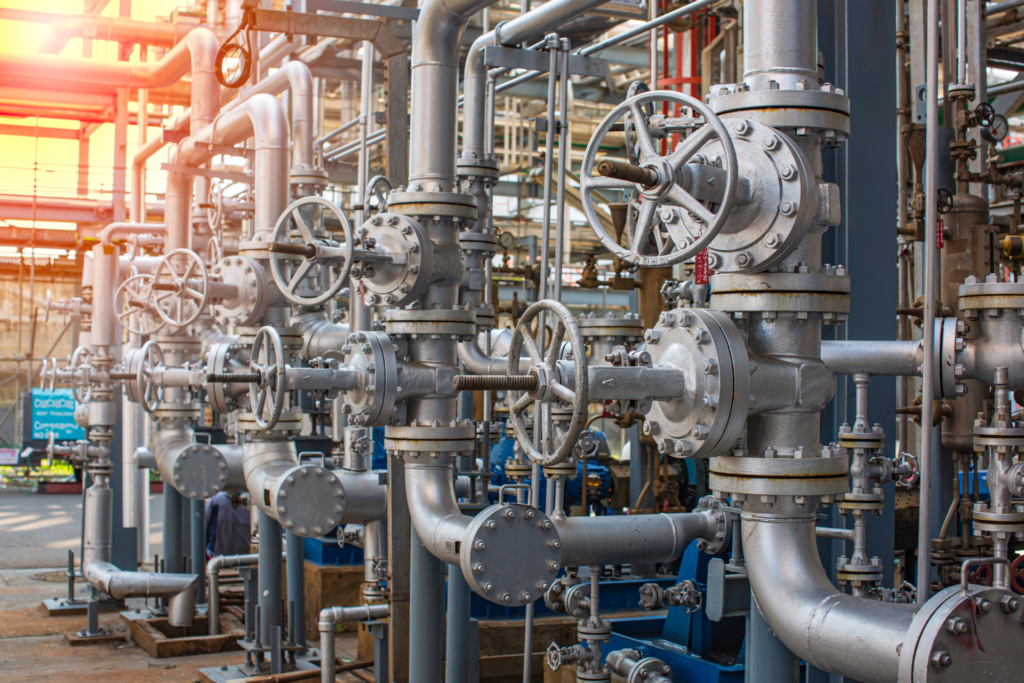The oil and gas industry remains a cornerstone of global energy infrastructure, offering a diverse range of career opportunities. From the extraction of raw materials to the refinement of fuels, this sector demands specialized knowledge and skills. Continuous learning and development are essential to navigate the complexities of this industry. (Just for the record, I want to share with you that you can find your specific course in seconds using our AI-enabled search engine, Courseific.com)
This comprehensive review explores a curated selection of top-tier oil and gas courses to enhance your expertise. Whether you’re an industry veteran seeking to advance your career or a newcomer looking to gain a foothold, these courses offer valuable insights into critical areas such as equipment safety, petrochemical engineering, and industrial boiler systems. Join us as we delve into the world of oil and gas education and discover how these courses can fuel your professional growth.
“Now with Courseific you can search for online courses in seconds-Click this Text to find out“
Understand, Select, & Maintain Your Proper Ex-Rated Equipment
The course “Understand, Select, & Maintain Your Proper Ex-Rated Equipment” is an essential resource for professionals working with explosion-proof equipment in hazardous environments. This course focuses on understanding the standards and best practices for selecting and maintaining equipment that meets safety requirements in explosive atmospheres.
Course Content
The course begins with an overview of the key regulations and standards governing explosion-proof equipment. It then delves into the selection criteria for choosing the right equipment for specific environments, emphasizing safety and compliance. Maintenance practices are covered extensively, including troubleshooting and ensuring that equipment continues to meet safety standards over time.
Interactive elements, such as case studies and practical examples, are used to illustrate real-world scenarios. This hands-on approach helps reinforce learning and ensures that participants can apply their knowledge effectively in their professional roles.
Pros: Detailed focus on safety standards, practical maintenance tips, and interactive case studies.
Cons: May be too specialized for those outside the hazardous environment sector, limited to equipment maintenance.
Ideal for: Safety professionals, maintenance engineers, and anyone involved in selecting or maintaining explosion-proof equipment in hazardous environments.
Petrochemical Engineering

The Petrochemical Engineering course is designed for those interested in the chemical engineering aspects of the petrochemical industry. This course provides a comprehensive overview of petrochemical processes, technologies, and their applications in industrial settings.
Course Content
The course starts with an introduction to petrochemical fundamentals, including the various types of petrochemicals and their sources. It then explores the engineering principles behind petrochemical production, including refining processes, chemical reactions, and separation techniques. Case studies on real-world petrochemical projects are included to demonstrate practical applications.
Advanced topics, such as environmental considerations and emerging technologies in the petrochemical field, are also covered. This well-rounded approach ensures that learners gain both foundational knowledge and insights into current industry trends.
Pros: Comprehensive coverage of petrochemical processes, practical case studies, and insight into emerging technologies.
Cons: The Technical content may be challenging for absolute beginners and may not cover all niche areas of petrochemical engineering.
Ideal for: Chemical engineers, petrochemical industry professionals, and students pursuing a career in petrochemical engineering.
Industrial Boilers and Deaerators
The “Industrial Boilers and Deaerators” course provides in-depth training on the operation, maintenance, and troubleshooting of industrial boilers and deaerators. This course is vital for professionals responsible for ensuring the efficient and safe operation of these critical components in various industrial settings.
Course Content
The course begins with an overview of boiler systems, including their design, operation, and the common types used in the industry. It covers key topics such as boiler efficiency, fuel types, and safety procedures. The section on deaerators explains their role in removing dissolved gases from water to prevent corrosion in boiler systems.
Practical elements, including troubleshooting tips and maintenance best practices, are covered in detail. The course also features real-world examples and case studies to help learners understand how to apply theoretical knowledge in practical situations.
Pros: Detailed technical training, practical maintenance and troubleshooting advice, and real-world case studies.
Cons: Focuses primarily on industrial boilers and deaerators and may not address other areas of industrial systems.
Ideal for: Boiler operators, maintenance technicians, and engineers involved in the operation and upkeep of industrial boiler systems.
Conclusion
The oil and gas industry is a complex and dynamic sector demanding specialized knowledge and skills. The courses highlighted in this review offer valuable insights into critical areas, enabling professionals to enhance their expertise and career prospects. By mastering equipment safety, understanding petrochemical engineering principles, or gaining proficiency in industrial boiler systems, you can contribute significantly to the industry’s operations.
Remember, the oil and gas industry is constantly evolving. Continuous learning is essential to staying at the forefront of technological advancements and industry best practices. By investing in your education, you not only enhance your career but also contribute to the safe and efficient operation of this vital sector.
Do check out our Project Management Free Courses List!

